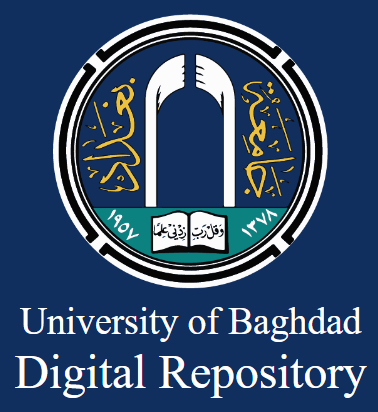The functional diversity of the directorial vision in the political theater cinema as a model
DOI:
https://doi.org/10.35560/jcofarts106/271-286Abstract
It is very necessary for the political theater to be within the space of every theatrical performance, so that the theater carries the diverse and enlightened values and cultures of this world. political theatre. In the first chapter, the researcher dealt with (the methodological framework), which includes the research problem identified by the researcher with the following question (the functional diversity of the directorial vision in the political theater)
Importance, purpose, limits and seal by defining terminology.
In the second chapter, the researcher dealt with the theoretical framework on two topics, the first (transformations of directorial vision in theatrical performance) and the second topic (aesthetic experiences in political theater), in addition to the indicators that resulted from the theoretical framework.
As for the third chapter, it contained (research procedures) that included the research community and the research sample represented by the play (Cinema) directed by (Kazim Al-Nassar), which was analyzed starting from the text on which the events were built and ending with the last detail in the theatrical presentation and its tools and the descriptive analysis method and the analysis of the research sample in the intentional way. While the fourth chapter included the results of the research and their discussion according to the analysis of the sample
References
Abbas, A. (D,T). Hello playwrights. Baghdad: Workers Central Press.
Abdul Hamid, S. (D.T). The innovations of playwrights in the twentieth century. Baghdad: Dar Al-Masdar.
Abdul Karim, S. (2012). The entrance to the art of directing. Baghdad: Al-Fath Library for Printing.
Abdul Redha, J. (2020). Manifestations of direct reading. Baghdad: Dar Al-Fath for Printing and Publishing.
Aiden, P. (D, T). Exhibition Theatre. (H. A. Ghanem, Trans.) Cairo: Center for Languages and Translation - Academy of Arts.
Al-Arja, J. (1991). The phenomenon of employment in Arabic. Department of Graduate Studies for Humanities and Social Sciences, College of Graduate Studies, University of Jordan, Master Thesis.
Al-Razi. (1983). Mukhtar Al-Sahah. Kuwait: Dar Al-Resala.
Ardash, S. (1979). director of contemporary theatre. Kuwait: Science of Knowledge.
bin Manzur, M.-F. (1993). Lisan al-Arab. Beirut: Dar Sader.
Brecht, B. (D,T). Theory of Epic Theatre. (J. Nassif, Trans.) Beirut: The World of Knowledge.
Chalabi, S. (1993). Dictionary of theatrical terms. Baghdad.
Desa, N. (2016). Theatrical direction. Jordan: Dar Al-Assar Education for Publishing and Distribution.
Farid, B. (1980). Theatrical Direction Principles. Iraq: Ministry of Higher Education and Scientific Research.
Gabr, Y. (2007). The function of incitement between the theater authority and the theater of authority. Baghdad: Al-Academy Journal , College of Fine Arts, University of Baghdad, No. 47.
Hadi, N. (2015). Taboo works. Baghdad: Al-Academy Journal , College of Fine Arts, University of Baghdad, No.71.
Hussein, H. (2016). ncitement in the Iraqi theatrical discourse. Baghdad: Al-Academy Journal , College of Fine Arts, University of Baghdad, No. 76.
Hussein,, M. (2020). The transformations of directorial vision in the Iraqi political theater. Baghdad: Al-Academy Journal , College of Fine Arts, University of Baghdad, No.97.
Jabra, I. (1976). Vision Fountains Critical Studies. Beirut: The Arab Foundation for Studies and Publishing.
Keehler, J. (2015). Theater and Politics. (L. Ismai, Trans.) Cairo: The National Center for Translation.
Lasotska, B. (1999). Theater and Experimentation. (H. A. Fattah, Trans.) Cairo: Supreme Council of Culture.
Mousa, F. (2020). The directorial vision in the epic theater performances "Awni Karumi as a model". Baghdad: Al-Academy Journal , College of Fine Arts, University of Baghdad, No.97.
Saliha, N. (1997). Contemporary Theatrical Currents. Cairo: Egyptian General Book Authority, Family Library.
sikran, R. (2000). Al Shams Theatre. Baghdad: House of Cultural Affairs.
Takmah Ji, H. (2011). Directing Theories. Baghdad: Dar Al-Masdar.
Downloads
Published
Issue
Section
License
Copyright (c) 2022 Muthanna Fadel Ismail, Kadhum Imran Mousa alomran

This work is licensed under a Creative Commons Attribution 4.0 International License.













